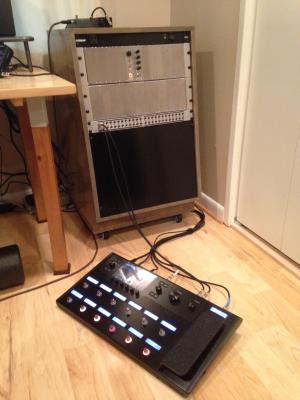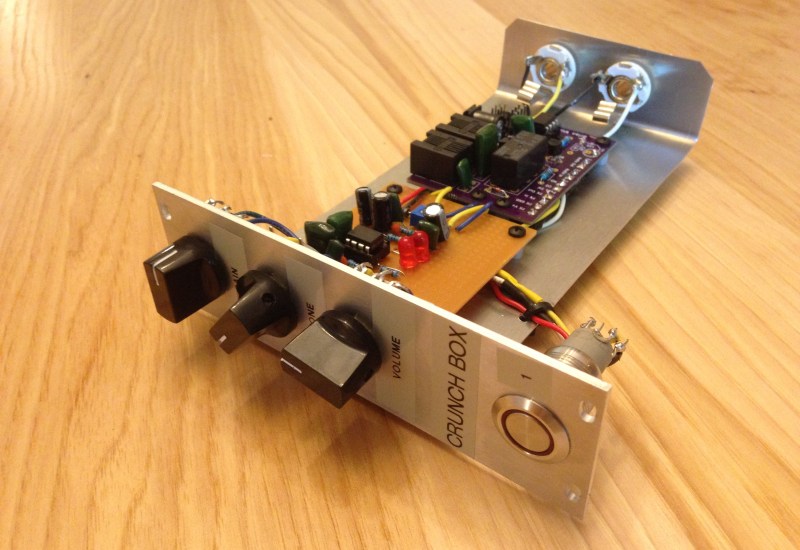Ever since Jimi Hendrix brought guitar distortion to the forefront of rock and roll, pedals to control the distortion have been a standard piece of equipment for almost every guitarist. Now, there are individual analog pedals for each effect or even digital pedals that have banks of effects programmed in. Distortion is just one of many effects, and if you’ve built your own set of pedals for each of these, you might end up with something like [Brian]: a modular guitar pedal rack.
 Taking inspiration from modular synthesizers, [Brian] built a rack out of wood to house the pedal modules. The rack uses 16U rack rails as a standard, with 3U Eurorack brackets. It looks like there’s space for 16 custom-built effects pedals to fit into the rack, and [Brian] can switch them out at will with a foot switch. Everything is tied together with MIDI and is programmed in Helix. The end result looks very polished, and helped [Brian] eliminate his rat’s nest of cables that was lying around before he built his effects rack.
Taking inspiration from modular synthesizers, [Brian] built a rack out of wood to house the pedal modules. The rack uses 16U rack rails as a standard, with 3U Eurorack brackets. It looks like there’s space for 16 custom-built effects pedals to fit into the rack, and [Brian] can switch them out at will with a foot switch. Everything is tied together with MIDI and is programmed in Helix. The end result looks very polished, and helped [Brian] eliminate his rat’s nest of cables that was lying around before he built his effects rack.
MIDI is an extremely useful protocol for musicians and, despite being around since the ’80s, doesn’t show any signs of slowing down. If you want to get into it yourself, there are all kinds of ways that you can explore the studio space, even if you play an instrument that doesn’t typically use MIDI.
















The (Line 6 Helix) pedal board is $1500 at SamAsh!
It happen to be the midi controller this guy is using. You can just use a cheap midi controller like the Behringer FCB1010.
Building your own isn’t that difficult either. There are a ton of arduino midi projects out there.
Not disrespecting Jimi Hendrix, but I always thought it was The Kinks who brought distortion to the forefront of rock and roll.
https://en.wikipedia.org/wiki/Distortion_%28music%29
Was just going to post the same thing. Or, if you want to talk “peddles” (as opposed to slashed speaker cones), Satisfaction was certainly at the forefront of Rock n Roll, and certainly used some heavy distortion.
A real rack of racks of FX! The hardware version of Rakarack, a free software audio processor for linux. I wouldn’t argue which is better, just lighter in weight.
For top marks he should have used the Behringer FCB1010. Way cheaper and way more hacker friendly.
Is there any way to contact the author of this hack?